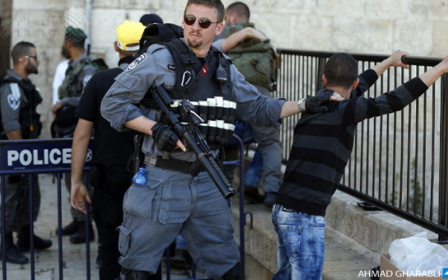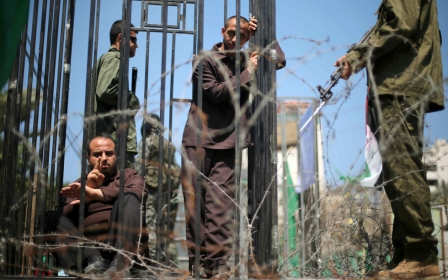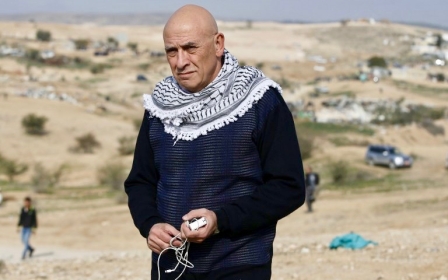Israel refuses to negotiate with Palestinian hunger strikers
Israeli's public security minister vowed on Tuesday not to negotiate with hundreds of Palestinian prisoners on the second day of a hunger strike led by popular leader Marwan Barghouti.
More than 1,000 Palestinians in Israeli prisons launched the hunger strike on Monday, issuing a list of demands ranging from better medical services to access to telephones.
Gilad Erdan said the prisoners were "terrorists and murderers... who are getting what they deserve and we have no reason to negotiate with them".
He said Barghouti had been placed in solitary confinement because calling for the hunger strike was against prison rules.
Erdan had said on Monday: "Barghouti, the leader of the hunger strikers, is politically motivated by [his campaign for] the Palestinian leadership, and includes unreasonable demands on the conditions of the prisoners."
Issa Qaraqe, the head of prisoner affairs for the Palestinian Authority, said on Monday that about 1,300 prisoners were on hunger strike and the number could rise. The Palestinian Prisoners' Club had put the number at 1,500.
Tens on thousands of Palestinians marched through the West Bank and the Gaza Strip to show their support for the strike. Hamas, which runs Gaza, saluted the "brave prisoners" on hunger strike.
In Ramallah, an estimated 2,000 people gathered in Yasser Arafat Square, with some announcing they were prepared to join the protest.
Israel's prime minister, Benjamin Netanyahu, did not comment directly on the protest, but on Tuesday called Barghouti an "arch-terrorist".
His defence minister, Avigdor Lieberman, said he wanted to take the approach of former British prime minister Margaret Thatcher, who publicly refused to accede to the demands of IRA hunger strikers in 1981, 10 of whom died.
Jailed Palestinians
Some 6,500 Palestinians are currently in jail in Israel. Of those, 62 are women and 300 are minors.
Some 500 are held under administrative detention, which allows for imprisonment without charge.
Palestinian prisoners have mounted repeated hunger strikes, but rarely on such a large scale.
Barghouti's call for the strike has given it added credibility, with the 57-year-old serving five life sentences over his role in the second Palestinian intifada or uprising.
He was convicted of attacks that killed five people.
He is popular among Palestinians, with polls suggesting he could win the Palestinian presidency.
"Decades of experience have proved that Israel's inhumane system of colonial and military occupation aims to break the spirit of prisoners and the nation to which they belong, by inflicting suffering on their bodies, separating them from their families and communities, using humiliating measures to compel subjugation," Barghouti wrote in a New York Times opinion article.
"In spite of such treatment, we will not surrender to it."
Middle East Eye propose une couverture et une analyse indépendantes et incomparables du Moyen-Orient, de l’Afrique du Nord et d’autres régions du monde. Pour en savoir plus sur la reprise de ce contenu et les frais qui s’appliquent, veuillez remplir ce formulaire [en anglais]. Pour en savoir plus sur MEE, cliquez ici [en anglais].




